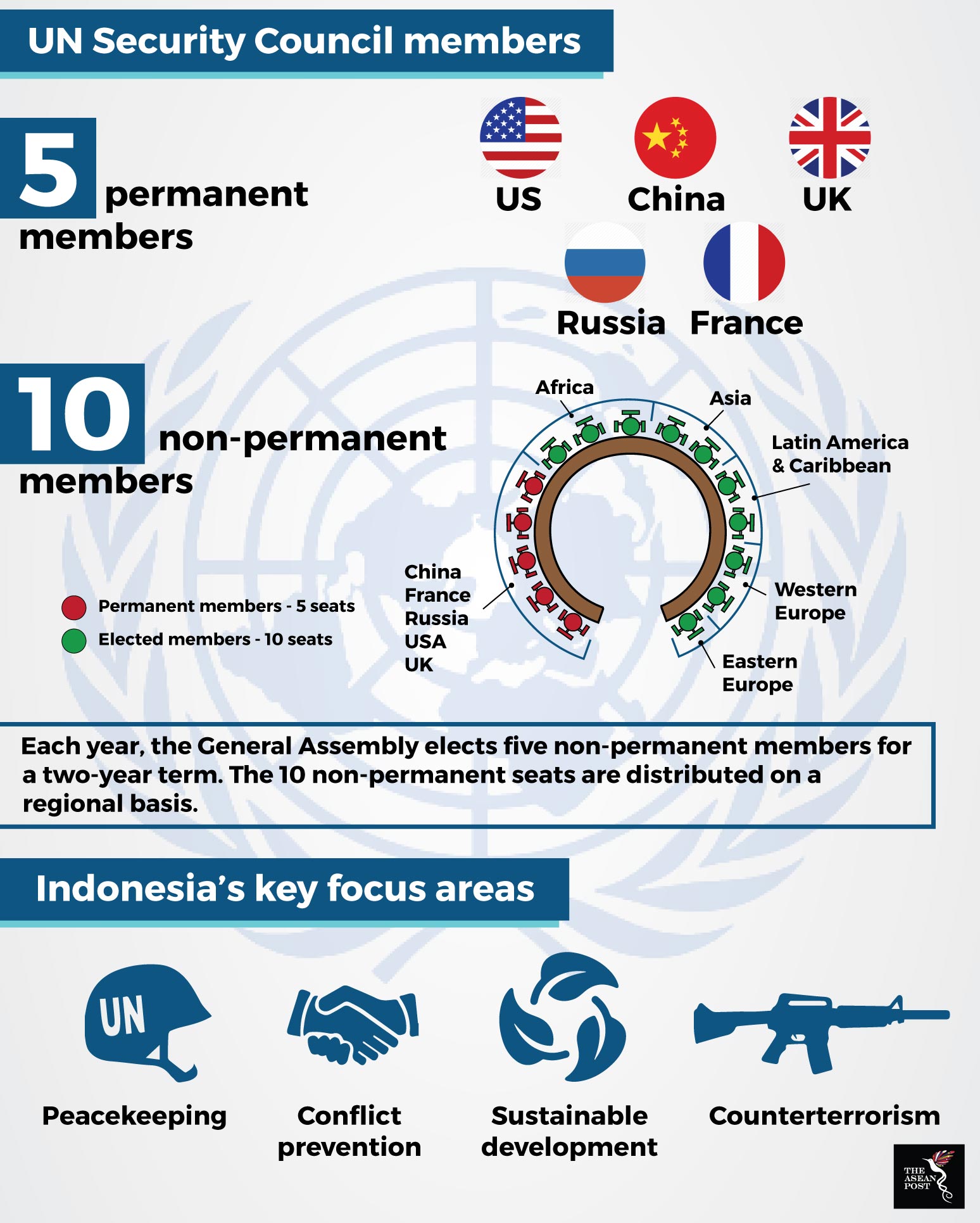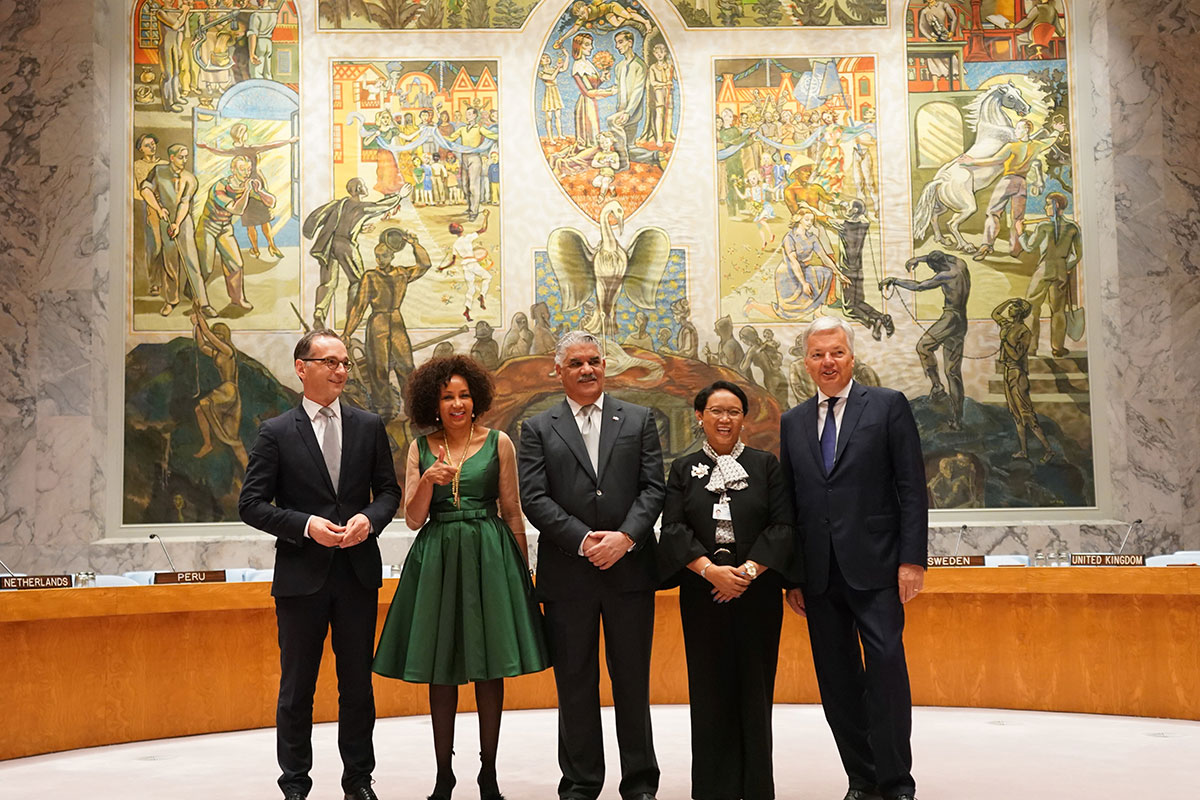Indonesia scored a rousing diplomatic victory in its bid to serve as a non-permanent member on the United Nations Security Council (UNSC) for 2019-20. Jakarta secured its place for the Asia Pacific Group seat following a run-off with the Maldives which saw them garner 144 votes against 46.
As a non-permanent member, Indonesia is bound by significant constraints within the structure of the UNSC. However, there is still plenty of room for Indonesia to flex its diplomatic muscles. Jakarta has been elected four times before this and in their immediate previous stint in 2007-08, they were widely seen as a voice of moderation and consensus building.
What will Jakarta bring to the table?
The world’s largest Muslim-majority country aims to pursue a comprehensive and holistic approach towards global diplomacy during its two-year tenure. When lobbying for support to secure the seat in a three-year long intensive campaign, Indonesian foreign minister, Retno Marsudi, told members of the UN that her country “will remain committed to be a true partner for world peace.”
Likewise, Indonesia has outlined four key priority areas towards realising this ambition. These four areas are peacekeeping, conflict prevention, sustainable development and counterterrorism.
On peacekeeping, she explained that Jakarta aims to create a global ecosystem of peace and security and intends to also advance the role of women in peacebuilding activities. Besides that, Marsudi stressed that a comprehensive approach was needed in order to address the root causes of terrorism in the world. She also mentioned the need for the UNSC to synergise and engage with other organisations to build conflict prevention mechanisms.
Indonesia, is no stranger to acts of terrorism. In May this year, terrorist attacks killed 18 people, including the bombers, at a church outside the capital, making this the deadliest bombings in the country since the 2005 Bali bombings. The attacks which were claimed by the Jamaah Ansharud Dauliah (JAD) – the largest faction of Islamic State (IS) supporters in Indonesia – marks a shift for IS. The group is now focusing on terrorist efforts outside the Middle East after losing many of its strongholds as a result of United States (US) and Syrian counter terrorism measures.

Source: Various sources
Marsudi also pledged to forge global partnerships to help maintain peace and pursue sustainable development, in line with the UN’s 2030 Agenda for Sustainable Development. Already, Indonesia has been leading efforts to combat crime in the fisheries sector by launching an intergovernmental initiative which includes neighbouring Southeast Asian countries, Australia, New Zealand and China to establish regional cooperation on the matter.
Indonesia’s track record
Indonesia continues to be an exemplar in UN peacekeeping which it can use as a form of soft power to advance its goals within the UNSC. Since 1957, it has been an active contributor to more than 30 UN Peacekeeping Operations (UNPKO) with the deployment of over 30,000 Indonesian troops and police personnel.
As of February 2017, Indonesian peacekeepers were deployed in 10 UNPKO missions. The country ranks ninth amongst 121 UNPKO contributing nations with 2,871 personnel stationed in various places worldwide. It aims to bolster this figure to 4,000 by 2019.
Indonesia can also leverage on its position as primus inter pares in the Association of Southeast Asian Nations (ASEAN) to draw attention to regional issues much closer to home. Jakarta practices a similar foreign policy conduct to ASEAN which is grounded in consultation and consensus that it can then employ within the hallowed halls of the UNSC.
Many within the public sphere are expecting Indonesia to raise the issue of the humanitarian conflict in Myanmar’s Rakhine State in the UNSC. However, this will prove tricky as doing so will be seen as challenging the fundamental principle of ASEAN centrality.
Nevertheless, Jakarta has been one of the few ASEAN members which has been actively speaking out against the humanitarian violations in Rakhine. In September last year, Marsudi met with Myanmar State Counsellor Aung San Suu Kyi to forward a proposal aimed at restoring peace and to allow for the immediate access to humanitarian assistance for victims in affected areas.
Hence, it would be down to Indonesian diplomats to intelligently navigate the tricky waters of international diplomacy if they intend to bring the matter up to the UNSC. However, Jakarta must also understand that it not only represents Southeast Asia per se but also the wider Asia Pacific and cannot pursue its individual interests while on the council.
Nevertheless, given its track record in diplomacy and its standing in the international arena, it can be said with sufficient confidence that Indonesia will effectively execute its role during its tenure on the UNSC.
